In the fight against the extra kilos, the worst thing is the obsession itself.
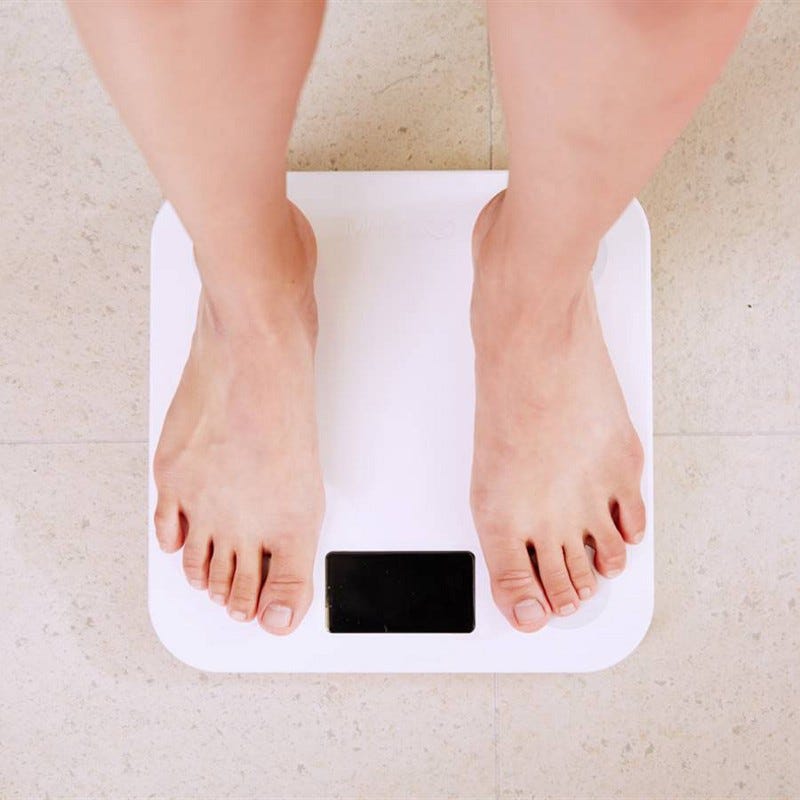
Because losing them does not guarantee more health, only conforming to an unreal pattern that damages your self-esteem. The key is to eat consciously.
HOW TO LOSE WEIGHT IN A HEALTHY WAY
If someone tells you that they have an easy, comfortable, and also fun remedy to lose weight, it is surely because they want to do business with your desperation. This is stated by the biologist and nutritionist Juan Revenga, the author of the book Adelgázame, who lie to me.
EAT MORE AND OF BETTER QUALITY
Every year thousands of people start a crusade against their own body with boring, extravagant diets, without scientific evidence, and even dangerous. With them, kilos are lost, but later they are recovered multiplied by two.
This is why many doctors advise to stop counting calories and grams and simply eat real food.
Get the solution to finally get rid of these problems in your life — CLICK HERE
WHY DO YOU WANT TO LOSE WEIGHT?
The cultural ideal of the slim body has much more to do with aesthetic standards imposed by multinationals (fashion, cosmetics, supplements …) than with wellness needs.
Because thinness is not necessarily healthy. Although current medicine has “bought” the discourse that it equals health, much research shows that this is not exactly the case.
A study conducted by Yeshiva University in New York found that more than half of the overweight people tested were perfect for cholesterol, glucose, blood pressure, and all the parameters that serve to measure health. What’s more, a third of obese people also enjoyed enviable health.
OVERWEIGHT INDICES, IN QUESTION
Is the Body Mass Index (BMI) then useful to know if our weight is excessive? Nor, apparently, because each body has its peculiarities.
In fact, an American investigation found that patients with a BMI between 25 and 30 (considered overweight) were 6% less likely to die prematurely than those with a healthy BMI.
More than weight, it seems important where fat is stored in the body: around the waist or the liver can be an indication of possible metabolic and heart problems. And, obviously, morbid obesity impairs mobility, bone, and heart health.
HOW YOU FEEL, A BETTER INDICATOR
Instead of falling into the traps of the latest fad diet, the important thing is to be well, regardless of what the scale reads.
That means feeling flexible because the joints and muscles allow us to carry out full ranges of motion.
Also with good vital energy throughout the day, especially in the morning when getting up and in the early afternoon, which indicates that the vital rhythms are well synchronized.
When you get at least seven hours of undisturbed sleep, when stress is managed reasonably well, and when physical activity is not a sacrifice for lack of energy or pain of some kind, but a pleasure, the body can be considered light, even if it has a few kilos more or less.
If not, “before losing weight, we should talk about regaining health”, explains Dr. Karmelo Bizkarra, a doctor at the Zuhaizpe Vital Health Center.
THE 4 FRONTS THAT YOU MUST ATTEND
Many times we don’t eat out of hunger, but to cover up frustrations, heartbreak, disagreements, or unexpressed anger, says Dr. Bizkarra. And from his experience, he advises, to maintain a healthy weight over time, not only take care of physical health but also take care of the four basic pillars of healing :
- Heal the body
- Harmonize emotions
- Quiet the mind
- Awaken consciousness
If you do not have that optimal energy level to live, review your eating habits, but not to lose weight, but to gain health and well-being.

1/12
Eat not less, but more
More food that nourishes and less than satisfies the palate, but it does not nourish the organism and rob it of vitality.
No matter how much you eat, if the diet does not have fresh and full of life food, what the body really needs to grow and renew itself, malnutrition and, therefore, hunger are constant.
When you choose a good diet such as vegetarian, very rich in vegetables, fruits, and whole foods, satiety is generated as soon as we reach the right amount, says Pablo Saz, a naturopathic doctor, and professor at the University of Zaragoza.
As this diet is based on fresh vegetables, we can eat a large amount while consuming few calories and that regulates weight.
In fact, according to a study by the E-Da Hospital in Taiwan, the vegan diet is the fastest way to lose weight, followed by the vegetarian: in 18 months, people who followed a vegan diet lost 2.5 kg more than those that followed a meat-based one; people who followed a vegetarian diet, 1.5 kg.
Get the solution to finally get rid of these problems in your life — CLICK HERE
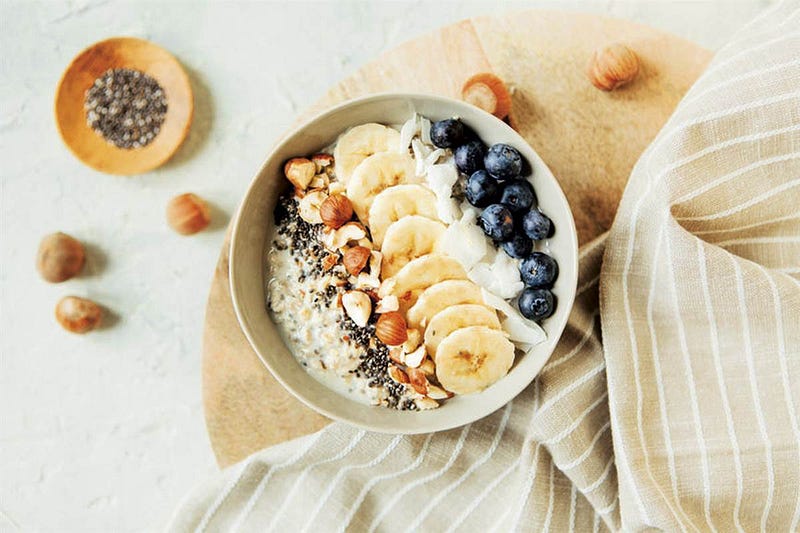
2/12
Food as less processed as possible
Chewing is worth being very aware of. This is something that we do not do if while we eat we watch television or consult our mobile, since digestion begins in the mouth, with the process of chewing and salivation.
A study from the University of Kyushu (Japan) has shown that chewing a lot increases the number of calories the body burns during digestion: an extra 10 calories in a 300-calorie meal. However, eating fast hardly burns calories.
Previous studies have also concluded that eating more slowly achieves a decrease in intake, better absorption of nutrients, regulation of appetite, and greater satiety.

3/12
Eat the fruit in bites, not in juice
juice has a high glycemic index that you can only afford if it keeps a lot of pulp and you are going to do physical activity. When we drink an orange juice — warns Antonio Palomar, doctor and health communicator — we can be obtaining glucose from two or four oranges at once.
This juice also has an energy similar to a beer, explains Duane Mellor, Professor of Nutrition at the University of Coventry (UK).
However, when we bite into an orange, we generally only need just one: the whole piece with its fiber does not cause increases in blood glucose.
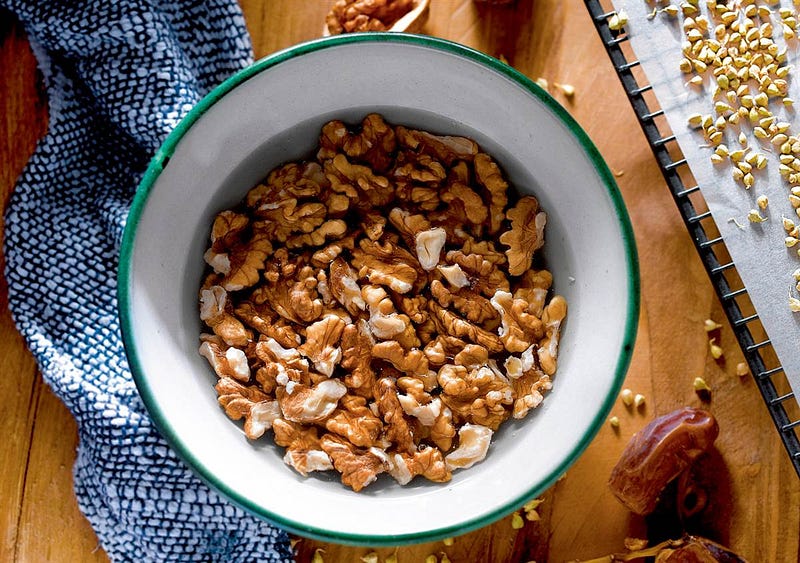
4/12
Good fats, essential
The conventional diet includes too many omega-6 fatty acids and a very low proportion of omega-3s. To regain dynamism and vitality, the proper ratio of fatty acids should be 6 to 1.
(Disclosure: This page contains affiliate links. If you purchase anything using links on this page, I will earn a commission at no cost to you. Thank you for your support!)
The main plant sources of omega-3s are walnuts, seeds, and flax oil, which can be used in salads and dressings (not for cooking).
Consuming pastries, prepared dishes, sauces, and desserts made with sunflower, safflower, or corn oils leads to an excess of omega-6 (30 to 1).
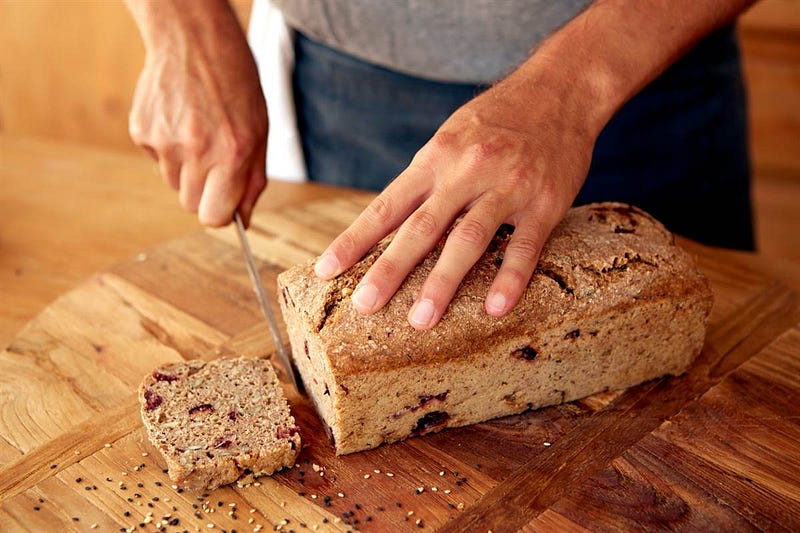
5/12
Don’t give up on (good) bread
Many diets fail because they insist on doing without bread. The sweet flavors of natural sugars and starches are ingrained in the palate because they served Homo sapiens so as not to die of hunger, reminds us of the doctor, and popularizer Antonio Palomar.
In reality, you just have to know how to choose. “Sometimes they sell us bread that is not wholemeal: they add molasses to dye it and it may seem that it has more bran, but it is not. Soft bread cannot be whole grain, ”warns Palomar.
You have to look for a comprehensive, compact, and hard to cut.
It is also advisable to give preference to the one made with natural sourdough fermentation. Consol Rodríguez, the author of Pan con queso (Urano, 2018), explains how to recognize it: when cutting it, there are traces of different sizes of the bubbling of the yeasts; they are not uniform in size.
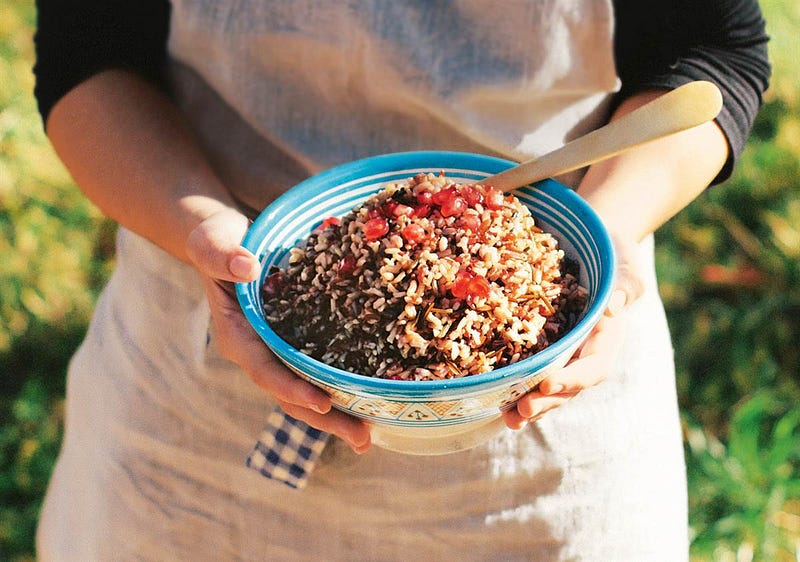
6/12
Whole-grain carbohydrates are not the enemy
Up to 70% of a healthy and light diet should come from foods rich in carbohydrates: whole grains such as rice, wheat, oats, barley, or millet; legumes such as chickpeas, lentils, or beans, and many vegetables.
Most of these foods contain slow-absorbing carbohydrates and are therefore preferable.
At the molecular level, carbohydrates are chains of simple sugars. But depending on the structure of its molecules, the digestion process can be fast or slow. If digestion is rapid, blood sugar spikes and the body transforms it into body fat.
It is therefore very useful to know the glycemic index, which classifies foods based on the speed at which their carbohydrates rise in sugar after eating and digesting them.

7/12
Eat slowly, chew well and you will burn more calories
It is worth being very aware of the act of chewing, something that we do not do if while we eat we watch television or consult our mobile, since digestion begins in the mouth, with the process of chewing and salivation.
A study from the University of Kyushu (Japan) has shown that chewing a lot increases the number of calories the body burns during digestion: an extra 10 calories in a 300-calorie meal.
However, eating fast hardly burns calories. Previous studies have concluded that eating more slowly achieves a decrease in intake, better absorption of nutrients, regulation of appetite, and greater satiety.

8/12
Cut down on coffee and forget about sweeteners
Excessive consumption of caffeine increases glucose and plasma insulin levels and hinders the metabolic process of using body fat as an energy source, says Dr. Montse Folch, author of The Diet of Colors (Grijalbo 2017).
This abuse causes an increase in the feeling of fatigue and even the desire to eat sweets!
On the other hand, synthetic sweeteners are very harmful and increase the absorption of glucose from ingested food and worsen the intestinal microbiota.

9/12
Take care of your intestinal microbiota
The set of bacteria in the digestive system (about 100 billion bacteria of 400 different species) make up the intestinal microbiota, which also influences weight and body fat.
Studies from the University of California in 2006 showed that obesity is associated with a certain type of bacteria. Later it was also discovered that obesity is associated with lower bacterial diversity.
These microorganisms are found in certain foods, such as fermented foods.
It is also important to consume foods rich in fermentable fibers, such as inulin (endives, artichokes, chicory …), which serve as food for intestinal life.

10/12
Try intermittent fasting
There is a type of fast that is easy to do and does not require medical supervision: it is, according to Dr. Pablo Saz, intermittent fasting.
It is as simple as making a snack-dinner at an early hour, around six in the afternoon, and the next day delaying breakfast. Thus you get a fasting period of between 12 and 16 hours which is a weight regulator.
It is about making a strong meal a day with a large number of vegetables, legumes, a bowl of cereal … and then two small meals, breakfast and a snack. The rest of the day, you can spend it with a few pieces of the whole fruit.
This fast would be based on the study of the longest living populations on the planet, in which being overweight is not unusual.

11/12
Specific foods are not everything
In addition to focusing on eating healthy food, it is also important to take care of your attitude towards food. This is stated by Carmelo Bizkarra, medical director of the Zuhaizpe Vital Health Center, who invites us to ask ourselves how we eat.
We should not only focus on its caloric intake but on the quality of the food (organic are preferable), the ripening time, and cooking at a low temperature. Without forgetting that in the shape and color of food there is a subtle energy that we also feed on.

12/12
Without exercise, there is no lightness
A little light exercise each day will suffice.
It may simply be brisk walking. You will burn 150–200 calories and with an hour of conventional exercise only 100 or 200 more.
It is very important. If you just fast, the body lives off its reserves and burns fat automatically. Now, if you don’t exercise it, “warns Dr. Pablo Saz,” insulin resistance develops and, when you eat again, it will try to fill all the empty tanks. You can even gain more weight and store more fat.
Get the solution to finally get rid of these problems in your life — CLICK HERE

























0 comments:
Post a Comment